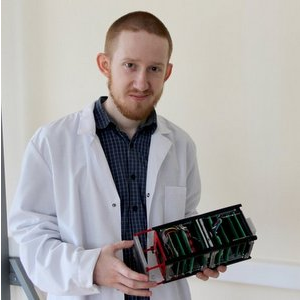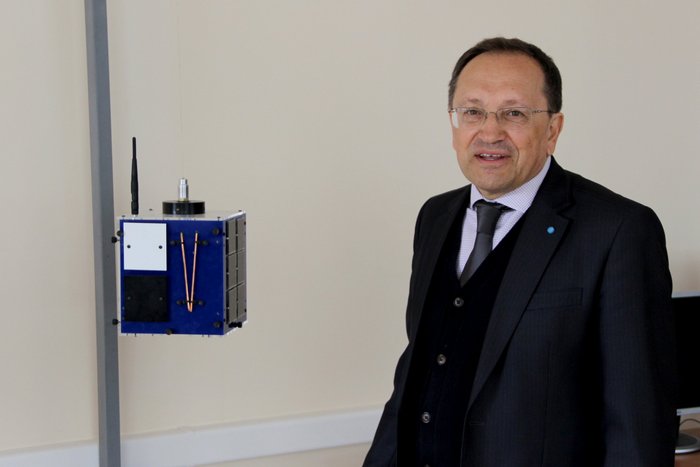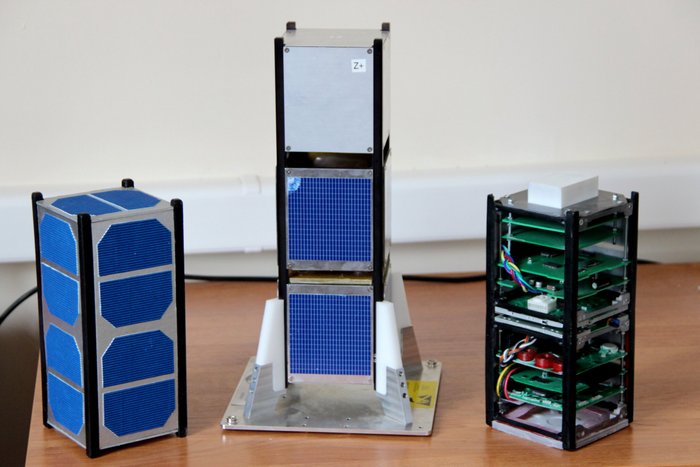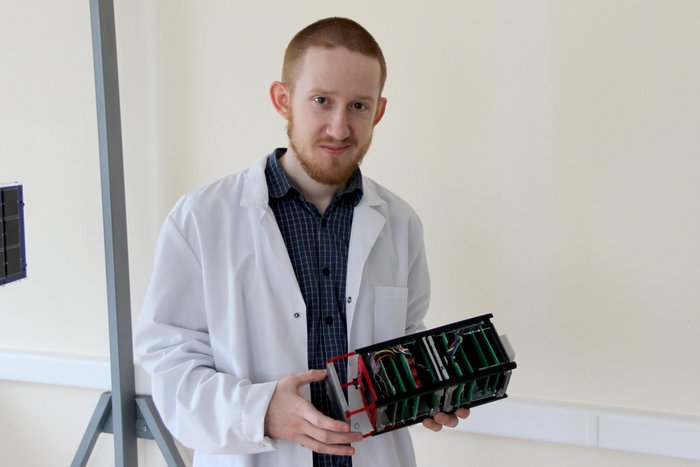
English > News
The first Russian symposium on nanosatellites will take place in SSAU
20.05.2015, 15:11
The first Russian symposium on nanosatellites “RusNanoSat-2015” will take place in Samara State Aerospace University from June 2 to June 4.
The experts will discuss new missions and projects of the use both individual nanosatellites and whole constellations of similar devices for solution of the applied and scientific problems. The symposium participants will examine the design features of nanosatellites; the use of advanced technologies in its creation; the organization of orbital launching; problems of development of scientific instruments for spacecraft of this class and other issues.
The interest of the world's leading universities in the production of miniature satellites is constantly growing. This is due to the fact that the creation of its own nanosatellite allows the university to engage students in the interesting, challenging and creative process. Over a relatively short period of time (about two years), students participate in all construction phases of the real spacecraft: development, manufacturing, testing, launching and maintenance.
Samara State Aerospace University is engaged in nanosatellites developing for several years, it is an important part of the educational and research program of the university (*).
Within the framework of “RusNanoSat-2015” SSAU scientists will present the project of nanosatellites launching with orbiter of carrier rockets of “Soyuz” type. Also the representatives of Samara Aerospace University will share the experience of creating their own nanosatellite SamSat-218, which is to be sent into space within the framework of the first launch campaign from the space-launch complex Vostochniy.
The university experts will talk about SSAU participation in the international project QB50. The development of SSAU scientists and students spacecraft SamSat-QB50 will become the only Russian participant of the international group of nanosatellites for the Earth thermosphere monitoring.
In addition, the outcome and results of some preceding and current missions of nanosatellites will be presented at the symposium. For example, the scientists of Al-Farabi Kazakh National University will talk about the possibilities of space monitoring of fires by groups of nanosatellites.
According to the symposium initiator Professor Igor Belokonov, Head of SSAU Inter-University Department of Space Research, the main purpose of the event is a dialogue of people interested in this theme and experience exchange.
“A round table will be held within the framework of the symposium where we plan to discuss achievability of the joint project of Russia, Kazakhstan and Belarus in the field of nanosatellites grouping creation to solve scientific problems”, - noted Igor Belokonov.
For reference
* - Nanosatellite Technology Development Program, implemented by SSAU scientists involves a perspective of the annual orbital launching of such devices.
The first SSAU nanosatellite SamSat-218 (the first Russian students’ nanosatellite) will be sent into orbit in the first launch campaign from the space-launch complex Vostochniy, together with a small spacecraft “Aist-2”.
The second SSAU nanosatellite SamSat-QB50 is being created to participate in a major international program to study the Earth thermosphere parameters. The satellite-transformer SamSat-QB50 is the only Russian nanosatellite included in the group of 50 nanosatellites, which are supposed to launch within the framework of the project QB50 in 2016.
In 2017 SSAU is scheduled to create a nanosatellite for the Earth remote probing, which could become the first one in the group of spacecraft of this class, already solving the applied tasks.
* * * * *
The first Russian symposium on nanosatellite “RusNanoSat-2015” will be attended by the leading Russian and foreign
enterprises
- JSC “Rocket and Space Centre Progress”
- Federal State Unitary Enterprise “Central Scientific and Research Institute of Machine Engineering” (Korolev, Moscow Region)
- JSC “Russian Space Systems” (Moscow)
- A.A. Maksimov Scientific and Research Institute of Space Systems - branch of Federal State Unitary Enterprise- Branch of Khrunichev State Research and Production Space Centre (Moscow)
- JSC “Saturn” (Krasnodar)
- Federal State Budgetary Institution “Research and Production Association “Typhoon” (Obninsk, Kaluga Region)
- Central Aerological Observatory (CAO) of Roshydromet
- Centre for International Space Cooperation “Yasniy-Kosmotras”
GAUSS Srl (Italy)
academic institutions
- Space Research Institute of the Russian Academy of Sciences
- M.V. Keldysh Institute of Applied Mathematics of the Russian Academy of Sciences
- Institute of Applied Physics of the Russian Academy of Sciences
- Skobeltsyn Scientific and Research Institute of Nuclear Physics of the Moscow State University
- Subsidiary of the Limited Liability Partnership “Institute of Space Technique and Technology” (Republic of Kazakhstan)
higher education institutions
- Ryazan State Radio Engineering University
- N.E. Bauman Moscow State Technical University
- Morehead State University (USA)
- Belarusian State University
- Al-Farabi Kazakh National University
The organizers of the symposium “RusNanoSat-2015” are SSAU, JSC “Rocket and Space Centre “Progress”, Volga Branch of Russian Academy of Cosmonautics named after K.E. Tsiolkovsky. The symposium will be held with the support of the Federal Space Agency (Roscosmos), Government of Samara Region, Council for Space Research of the Russian Academy of Sciences, the International Astronautical Federation.
More information and the symposium program can be found at www.volgaspace.ru.

Professor Igor Belokonov


Professor Igor Belokonov

Layouts of nanosatellites


Artem Bogatyrev, Engineer of Testing Laboratory for Motion Control Systems of Nanosatellites









